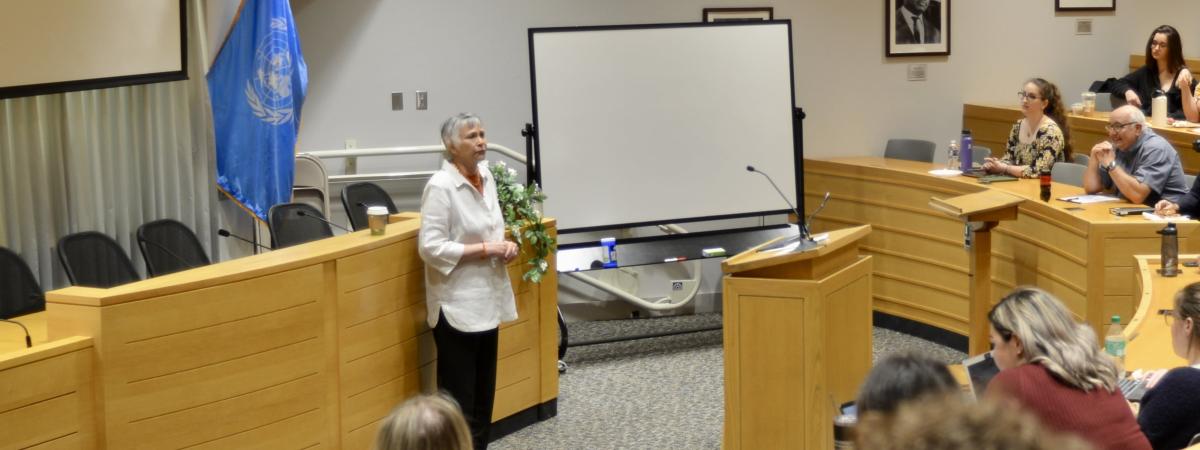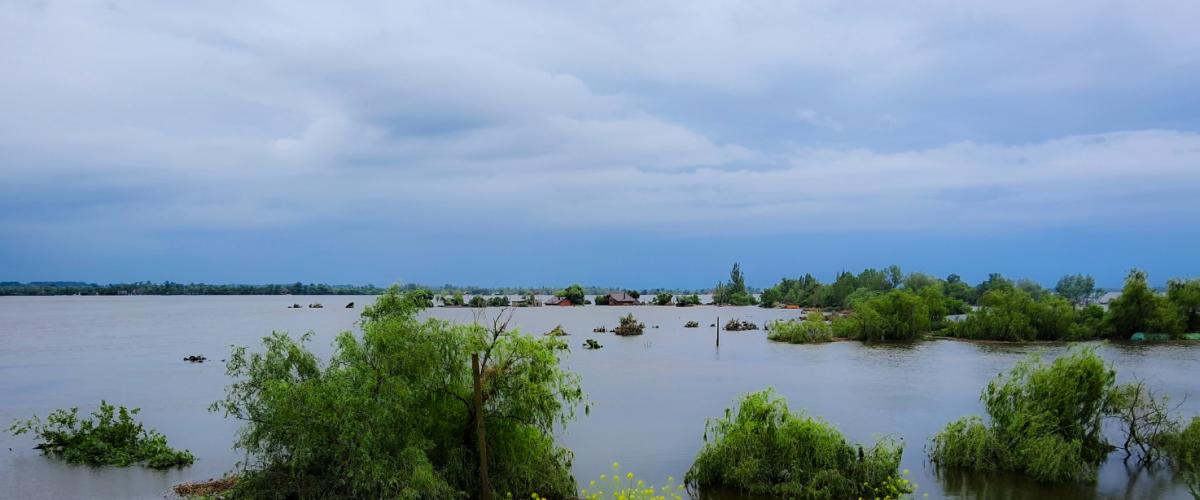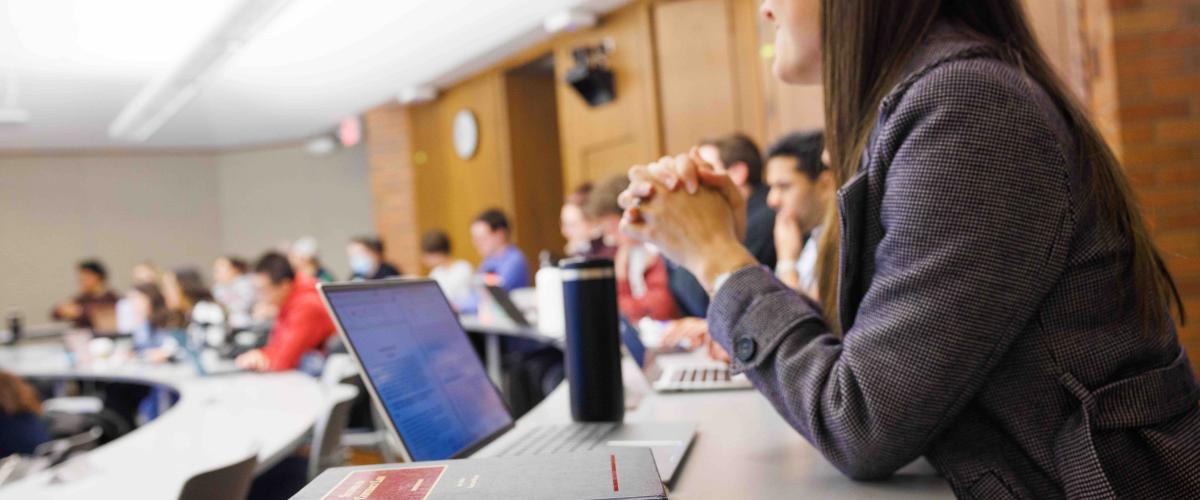On August 31, 2023, Brenda Hollis, the International Prosecutor in charge of the International Criminal Court’s Ukraine investigation, discussed her work at Case Western Reserve University School of Law to a packed audience. Organized at the last minute to take advantage of Hollis’ presence at the nearby Chautauqua Institution earlier in the week, it was the first event of the new school year at the law school.
Hollis, who received an honorary degree from CWRU in 2012, is the only person ever to serve as the Chief Prosecutor of two International Tribunals — the Yugoslavia Tribunal and the Cambodia Tribunal. Since 2022, Hollis has led a team of 47 ICC prosecutors and investigators building criminal cases against perpetrators of international crimes in Ukraine.
Based on the evidence that Hollis’ team assembled, on March 17, 2023, the ICC issued an arrest warrant for Russian President Vladimir Putin for the abduction and deportation of children from Russian occupied regions of Ukraine. It was the first time in history that the leader of a permanent member of the UN Security Council has been subject to an International Criminal Court arrest warrant.
Hollis told the CWRU audience that the ICC focuses on high level perpetrators and that she started with the case of child abduction because of the public statements Putin made directly incriminating him in the decision making behind that international crime. Other cases against Putin are likely to follow as her team continues their work.
When asked about the effect of the charges on Putin, Hollis noted that the Russian leader was prevented from attending the recent BRICS (Brazil, Russia, India, China and South Africa) Summit in South Africa because South Africa announced that it would have to arrest him if he showed up in its territory. She said that other leaders indicted by international tribunals—Slobodan Milosevic of Serbia and Charles Taylor of Liberia—were ultimately tried for their international crimes by the international courts, and after the ICC charged Sudan President Al Bashir for genocide in Darfur, he fell from power and is under arrest. “International justice is patient,” Hollis said.
In thanking Hollis for her candid and insightful remarks about such an important international matter, Co-Dean Michael Scharf told the new students in the audience that when they think back on their first days of law school they will no doubt recall this extraordinary event featuring one of history’s most important figures in the field of international criminal law.





